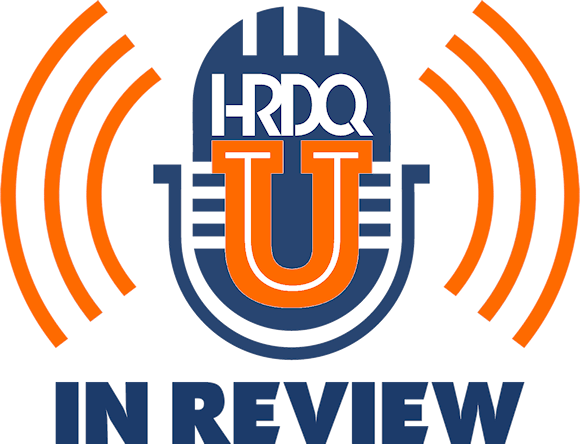

In this episode, I’m joined by Devin C. Hughes to explore the power of kindness in the workplace. Devin, a thought leader in creating positive organizational cultures, shares insights from our recent webinar on fostering supportive environments. We discuss the shifts happening in L&D, barriers to kindness, and why kindness is more than just “being nice.” Devin also sheds light on how kindness impacts team outcomes and the common challenges organizations face in nurturing a culture of respect and support.
00:00
Welcome to this week’s episode of the HRDQ-U In Review podcast, where we bring you the latest insights and practical tools for enhancing soft skills training in your organization. This podcast is brought to you by HRDQU.com, and I’m your host, Sarah, Learning Events Manager at HRDQU. And today I have Devin C. Hughes joining me to discuss the webinar, Kindness at Work: Creating a Supportive Workplace Culture. Thanks, Devin, for joining me today. Oh, thank you so much for having me. Super excited to be here.
00:29
Yeah, it’s been a bit since, uh, since you’ve been on the podcast. So welcome back. Yeah. Well, thanks. I’m always excited to be back on this podcast with you, Sarah and Devin, for those of the, our listeners that are tuning in today that don’t know about you yet. Can you share a little bit about who you are and what you do? Yeah. So I write, uh, speak research, all things workplace culture.
00:57
Anything where there’s an opportunity for human beings to thrive, belong, to be more specific in terms of engagement, inclusion. If you’ve got an organization and you have outcomes and you want people to play nice and get along and drive productivity, that’s the sandbox that I play in. And Devin, with the ever-changing environment that we live in in today’s day and age, what changes do you see happening in the L &D space right now? Well, there’s some huge ones.
01:25
We can’t be tone deaf to the world around us. The world’s pretty heavy right now for a lot of folks. In terms of inflation, just stuff, the heaviness of just life. To be more specific though, we got five generations in the workforce. And so we’ve got five generations all trying to coalesce and figure out my role, how I get along, hybrid, remote.
01:55
how many days, which days, too many meetings, not enough meetings, how we collaborate. I mean, those are just a few of the things that come to mind. Absolutely. And so what about you personally? What exciting things are you up to next in the business realm? Well, a practitioner like me, these are exciting times. I love the ambiguity and the uncertainty of it all because we don’t really, we haven’t, I haven’t been here before.
02:22
I don’t know what it’s like to leave post pandemic, post-election and trying to figure out, again, what is the right number of days? How do we get people? mean, if you look at some of the data, Sarah, mean, loneliness, for example, is at all time high in America. We got more lonely adults than we’ve ever had. We’re as connected but disconnected. No, I don’t like that.
02:48
But I do like trying to figure out how do we get more people to feel like they belong, like they can thrive? How do we build careers? How do we have more employee engagement? And just, those are some of exciting things that I’m working on and excited to, you know, take part in. Yeah. The loneliness statistic that you share in the webinar really is, it’s surprising. For sure. It’s sad. It’s, it’s alarming. Um, so we recently did our webinar together on the kindness at work.
03:14
creating a supportive workplace culture. Can you share with the key takeaways were for our registrants at this event?
03:26
I’m sorry, I think I missed that, Sarah, I’m sorry. So we recently did a webinar together on the kindness at work, creating a supportive workplace culture. Can you share with the key takeaways were for our registrants at this event? Yeah, so I think kindness is something we don’t ideally we all want. Doesn’t matter what generation you are, where you are in your career. The kindness is something we can democratize.
03:54
So you’re like, okay, well, I get it. So what does that look like? What kind words, kind deeds? And so I thought, again, I would argue that kindness should not be hopeful happenstance. It should be a part of the strategy. How we treat people, how we show up, how we engage. What does our interview process look like? What does our onboarding process look like? What are our one-on-ones? What are our team meetings? And could we take something that we learned in kindergarten and actually be more intentional about bringing it back to work? And I think…
04:24
Clearly, if we do it right, people will pick it up. It’s like a Wi-Fi signal. People know when they’re in kind environments, and they just feel better. And when they feel better, they perform better. And this topic is a heavy one. It’s a big one. How did we get here? Yeah. So it’s interesting. I just wrote a blog post the other day called America the Rude, How We Got Here. One of it’s a social isolation.
04:53
Coalesce is like we used to. I’ll give you an example, just a couple data points. Did you know church attendance is down? Volunteering is down? Family dinners are down? And all those provide conduits for human beings to gather. We don’t gather like we used to. We text, we Snapchat, we tweet. We don’t know our neighbors. We lost a sense of community. And then in these hybrid environments and remote environments, which I’m not anti,
05:19
It’s harder to build relationships with people because we don’t have those serendipitous conversations. So in the absence of connectivity, other stuff fills in the way. And then in a lot of other cases, we’ve normalized bad behavior. If you hear language like this, oh, that’s just Norman being Norman. He rolls his eyes at me. Oh, don’t worry about Mary. She’s sarcastic with me. We’ve actually normalized bad behavior and in lot of cases for risk of offending or avoiding hard, difficult conversations. Yeah.
05:49
Yeah, and what about barriers? Are there barriers to kindness at work?
05:56
Well, I think sometimes leaders perceive that if you’re kind, you’re weak. And I would disagree with that. I think you can be a great leader. again, tone of voice certainly matters. Delivery matters. I mean, you can just treat people better. Call it what you may. I use kindness because it’s neutral. It’s agnostic. So are there any barriers? I think sometimes the perception of kindness.
06:23
Sometimes it’s like woo woo, like really Sarah, we wanna be kind? We’re doing hard work here. Yeah, we can do hard work, but the way we do the work and the way we treat each other can feel different. Yeah. And we talked about this one a little bit during the webinar, but I’d love for you to touch on it again. Is being kind and being nice the same thing? No, and people often get this confused. They often interchange kindness and niceness and they’re in the same sandbox. But I’ll give you an example.
06:53
And I don’t mean to be crude or crass, but I’m just going to keep it, you know, I just think it’s appropriate. If I walk into the room, okay, it’s me, you and a bunch of other people, Sarah, and I have spinach in my teeth, okay, because I just got back from lunch. I have spinach in my teeth and everybody can see it. The nice person won’t say anything because they don’t want to hurt my feelings. The kind person will say it.
07:24
because they don’t want me to walk around all day or sit around in the meeting all day with spinach in my teeth and everyone staring at it. Kindness is passive. mean, kindness is active. Being nice is passive. There’s a lot of nice people. They say hi to you. You see them maybe in the hall or in the communities and maybe you’re nice to the barista or the person in the checkout, you know, in the line. Kindness, the difference, delineation between the two, kindness is active. You have to do something.
07:52
You have to engage. There’s a lot of nice people. And I like nice people. We need more kind people doing the right things and doing the right things for other people. That’s such a great way to put it. And when you see kind environments, what are the outcomes? How does that improve the work environment? Well, everything we can measure based on science in Peru is if you get the environment right. I mean, there’s literally so much information.
08:19
Because when people are in a kind environment, emotionally they feel safe. They feel safe. They feel like they belong. human beings at work all want the same three things based on my research. Now, I know everyone goes compensation. I get it. That’s like oxygen. Beyond money, they all want the same three things. They want to be seen, heard, and valued. Seen, heard, and valued. And if you get that right and use kindness,
08:49
to connect with people, outcomes improve like engagement, like productivity, like retention, all that stuff. It’s innovation. mean, you name it. And that’s just a few of the work outcomes. When you’re in kind environments, kind homes, people tend to live longer, have less stress. They’re in a better place. And we know that stress is as contagious as a common cold.
09:17
So those are a few of the things that come to mind. Yeah. And Devin, before I let you carry on on your Friday, where can listeners go to learn more about your work and connect with you? So I’m all over social media. You can find me on LinkedIn and X and threads and all that good stuff. But you can also find me on my website, which is DevinCHughes.com. That’s D-E-V-I-N-C-H-U-G.
09:47
H U G H E S dot com. DevinCHughse.com. One of those are social media. Great. And with that, before I let either rest of you guys go today, make sure that you check out, we will have everything linked below. So if you haven’t had the opportunity to watch the webinar, I highly recommend you do that. We’ll have that link below. We also have a full library of webinars that Devin has presented over at HRDQ that you can check out there too. Um, thank you so much Devin for your time today.
10:16
Thank you. And by the way, Sarah, I don’t know if it, you know, matters or not today’s feel good Friday. This is a great day to have this podcast. Everybody feel. Yeah. So thank you for on feel good Friday for filling my cup with a little bit of goodness and kindness on with the podcast. Thank you. Heck yeah. That’s awesome. I’m ready to start my weekend off with feel good Friday. That’s great.
10:36
And we hope that you enjoy listening to the HRDQ-U In Review podcast available on all major streaming platforms. If you did enjoy today’s episode, make sure to give us a follow and leave us a five-star review. That’s how we’re able to continue to produce this weekly content for you. Thank you all for tuning into this week’s episode of the HRDQ-U In Review podcast brought to you by HRDQU.com.


Listen to this podcast event at no charge with your
HRDQ-U Free Access Membership
In this episode, I’m joined by Devin C. Hughes to explore the power of kindness in the workplace. Devin, a thought leader in creating positive organizational cultures, shares insights from our recent webinar on fostering supportive environments. We discuss the shifts happening in L&D, barriers to kindness, and why kindness is more than just “being nice.” Devin also sheds light on how kindness impacts team outcomes and the common challenges organizations face in nurturing a culture of respect and support.
[ PODCAST PLAYBACK ]
You must be signed-in with your membership account to access this content.
Enjoyed this podcast? Have suggestions on how we can improve? Please take our quick survey and receive a coupon for 15% OFF any of our individual membership plans.
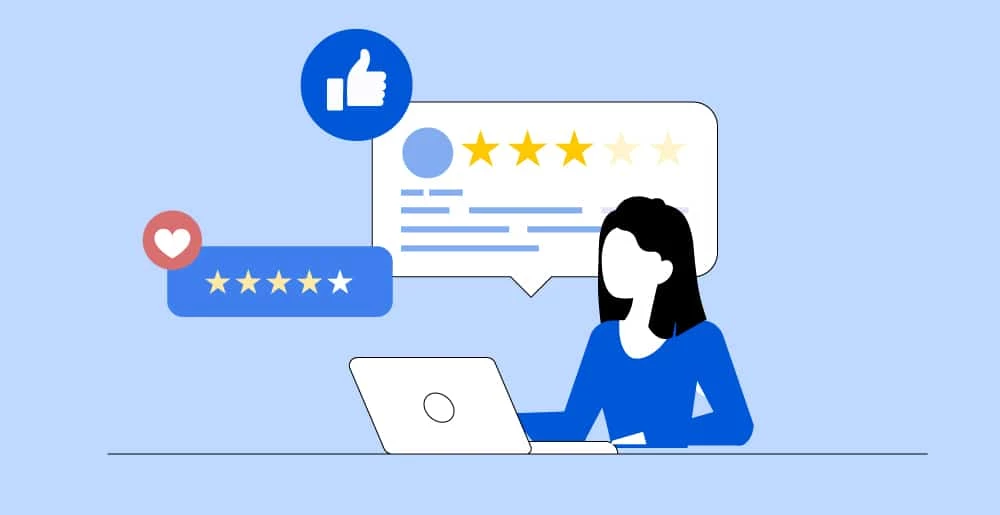
*Instant 15% coupon available upon completion of survey.
Want to learn more? Become an Individual or Corporate member to watch this and hundreds more webinars!
Kinder interactions among leaders and employees can lead to more effective communication, which can drive positive organizational outcomes.
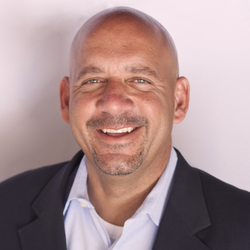
Devin C. Hughes
Devin C. Hughes is an award-winning speaker, best-selling author, and internationally recognized expert in the science of happiness, organizational/culture change, and leadership development. He has lectured and worked with a variety of Fortune 100 companies, as well as the Secret Service, the IRS, and an assortment of profit and nonprofit organizations. Devin is the author of 20 books and has lectured in more than 15 countries. He lives in San Diego, California, with his wife, four daughters, and two rescue dogs.

Training Tools for Developing Great People Skills
This event is sponsored by HRDQ. For 45 years HRDQ has provided research-based, off-the-shelf soft-skills training resources for classroom, virtual, and online training. From assessments and workshops to experiential hands-on games, HRDQ helps organizations improve performance, increase job satisfaction, and more.
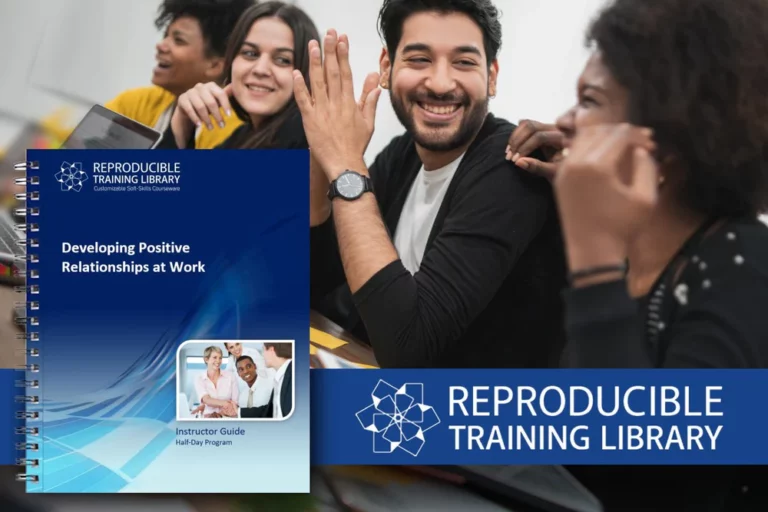
Developing Positive Relationships at Work Customizable Courseware
Unite your team around a common mission, embrace diversity, and build a culture of trust. Empower your employees to rise above challenges and foster meaningful connections.
Buy at HRDQstore.com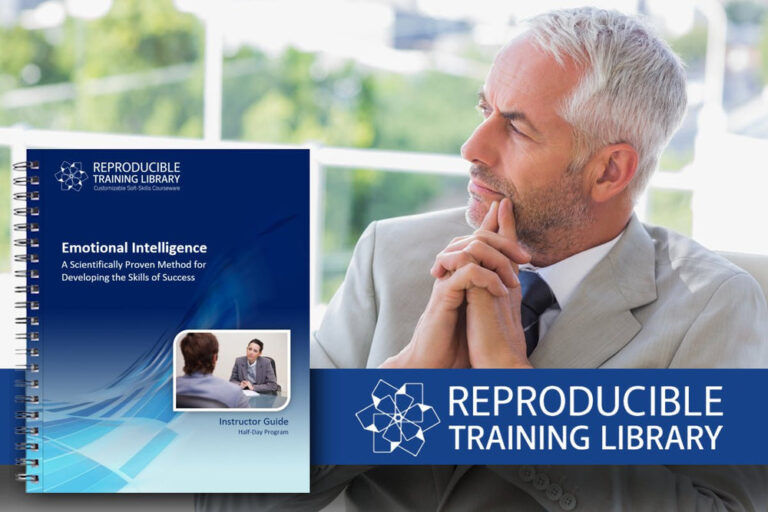
Emotional Intelligence Customizable Courseware
Elevate your workplace with the power of emotional intelligence. Learn how to foster kindness and strong interpersonal relationships to navigate stress and build a resilient team.
Buy at HRDQstore.com
“This was one of the best webinars I’ve attended. Great speaker, great information, and very engaging.”
Paige C.
HR Generalist
Parker Street Ministries

“I learned a lot from the information given. I can’t wait to share with colleagues as well as attend more sessions! Excellent opportunity!”
Lisa J.
Related Service Provider Assistant
Chicago Public Schools

“We need more of this type of training/teaching! People just forget how to be kind and need to be reminded.”
Renee C.
RN
Optum
The HRDQ-U In Review Podcast, brought to you by HRDQU.com, brings you the latest insights and practical tools for enhancing soft-skills training in your organization. As a learning community for trainers, coaches, consultants, managers, and anyone passionate about performance improvement, we interview subject matter experts and thought leaders from recent webinars they presented with us to take a deeper dive into the content they shared and answer all your questions. Join us as we explore new ideas and industry trends, share success stories, and discuss challenges faced by professionals.
The HRDQ-U In Review Podcast is intended for HR and training professionals, organizational development practitioners, and anyone interested in improving workplace performance and productivity.
New episodes of HRDQ-U In Review are released every week.
The length of the episodes varies, but they typically range from 15-30 minutes.
The podcast covers a wide range of topics related to HR and organizational development, including leadership development, team building, communication skills, conflict resolution, employee engagement, and more.
No, HRDQ-U In Review is completely free to listen to.
You can listen to any available HRDQ-U In Review Podcast right on our website at HRDQU.com via our embedded Spotify player on the related webinar page. In addition to our self-hosted option, you can find the HRDQ-U In Review Podcast on many of the popular streaming services, which are listed above.